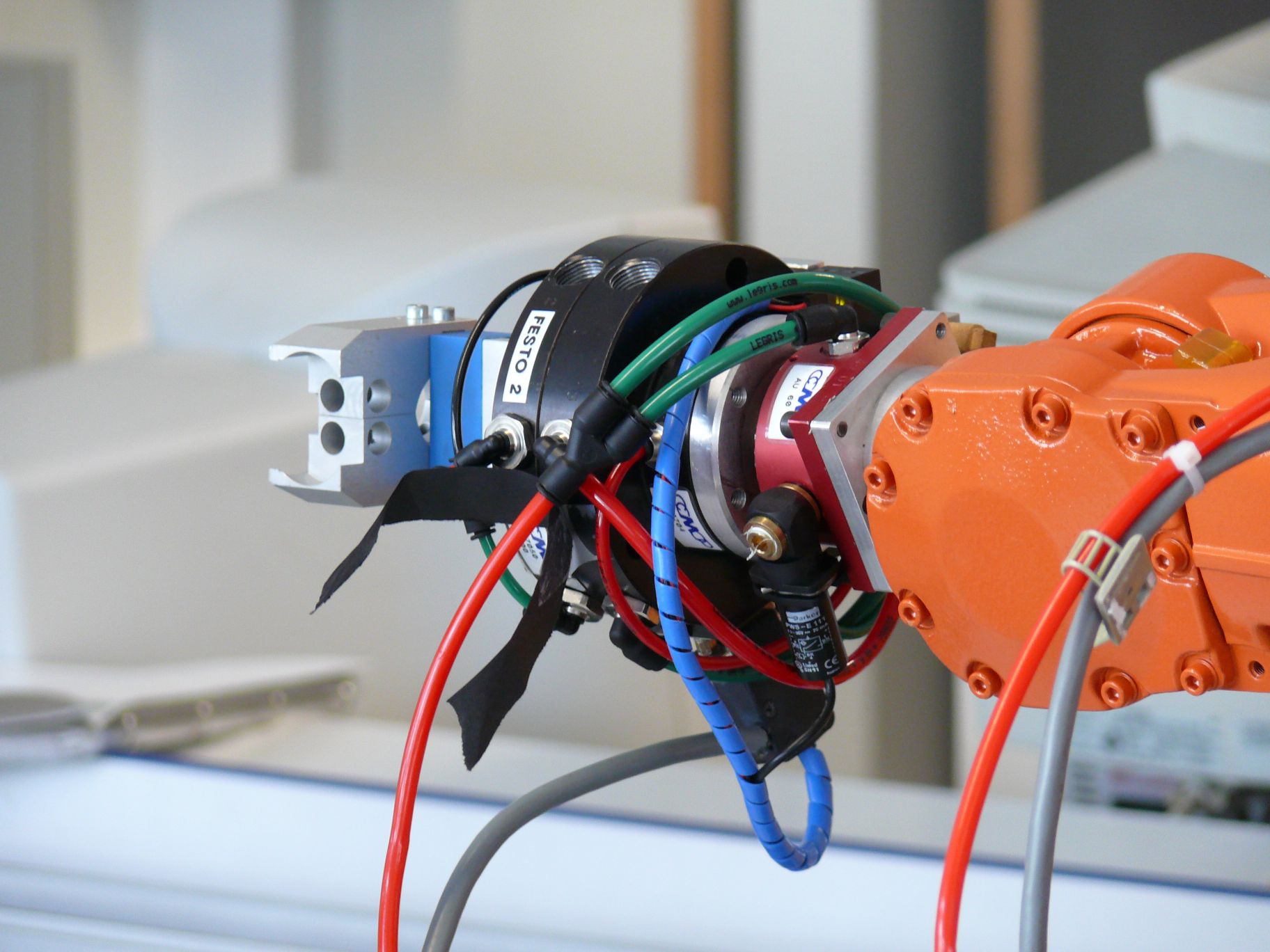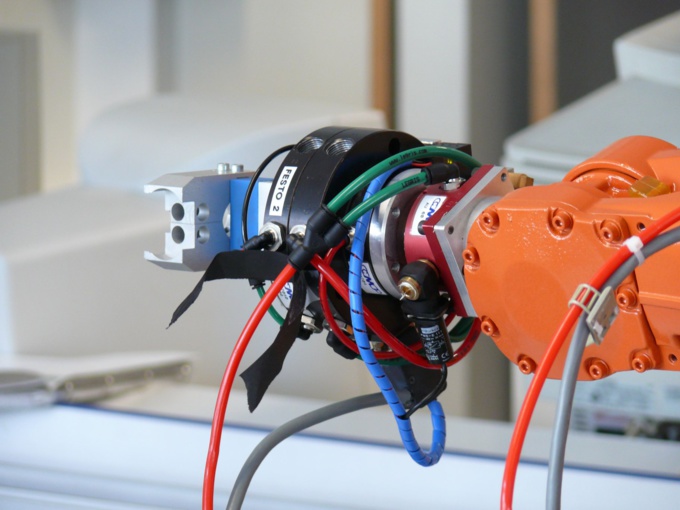According to the International Federation of Robotics (IFR), last year the production of robots increased by 27% to 90,000 units in China. This is an absolute record in the world and almost a third of the world's total. According to the forecast, the annual pace of robots' production in China will grow to 160 thousand units by 2019. Of the total number of installed industrial robots, about 100 thousand will be produced by Chinese companies - a quarter of world production.
Automation can stimulate increased productivity and competitiveness of exports. Yet, increased use of robots also threatens to aggravate inequality in incomes of citizens within the PRC and undermine domestic consumption. "Automation carries the risk of aggravating dependence of China's economic growth on exports due to increased supplies and suppression of demand, which threatens a more balanced domestic and global economy," BI’s economists Tom Orlik and Fielding Chen say.
Robots underlie the state plan of the People's Republic of China Made in China 2025, which implies modernization of plants to achieve a high level of automation and manufacturability. Replacing robots with "conveyor" workers will also help the authorities compensate for the decline in the working-age population of China.
China is also actively acquiring high-tech companies all over the world, occupying advanced positions in robotics, thus significantly accelerating development of their own robotics. Currently there are more than 800 robotic enterprises with a production volume in 2016 about 72,400 robots in the PRC. Development of artificial intelligence in China will create even greater prospects for development of robotics. Among other things, government of China aims to accelerate introduction of large data, cloud computing and Internet technologies in Chinese companies.
The Chinese market of industrial robots has become the largest in the world. According to the Ministry of Industry and Information Technology of China, the annual production of robots in the country was about 9,500 units in 2013, in 2014 - 17 thousand, in 2015 approached 33 thousand units. In 2014, the market grew by 56%, reaching the level of 57 thousand units, in 2015 - by another 20% to 68,600 units. For comparison, the total sales volume of all European countries in 2015 was only 50100 units, and in North America, Japan and Korea - 36400, 35 thousand and 38 thousand units respectively.
In order for China to reach the planned level of annual production of 100 thousand units by 2020, it is necessary to maintain an average annual growth rate of 24.6%. In reality, everything happens much faster.
If you look at how many times the number of industrial workers in China is higher than in the US, Korea, Japan and Germany, and make an amendment to the growth rate of automation in these countries, it becomes apparent that China will concentrate more than 60% of the world robotic production in absolute terms, by 2020. We can only imagine how this will affect the global balance of power.
In terms of sales of industrial robots, the automotive industry competes with electronics. For example, the world's largest electronics manufacturer, the Taiwanese company Foxconn Technology Group, which uses industrial robots of its own design, plans to produce 10,000 robots a year in the PRC and robotize 30% of its Chinese factories by 2020.
According to IFR forecasts, by 2020 China will have an average of 150 robots per 10,000 industrial workers - three times more than in 2015. For comparison, this figure was 176 units in the USA in 2015, 531 units – in Korea, and 305 and 301 - Japan and Germany, respectively.
According to BI, "robotic revolution", proposed by President Xi Jinping, will raise concerns about greater social inequality. After all, productivity growth will bring more benefits to owners of capital, rather than workers. Such a result could lead to a reduction in household spending and postpone the country's transition to an economy stimulated by consumption, Orlik and Chen argue.
Experts believe that robotization in the Middle Kingdom will completely reverse the world production. In addition, explosive productivity growth will allow China to eventually export its experience in the field of robotics and automation technologies, supplying assembly lines and "smart factories" to other countries.
source: bloomberg.com
Automation can stimulate increased productivity and competitiveness of exports. Yet, increased use of robots also threatens to aggravate inequality in incomes of citizens within the PRC and undermine domestic consumption. "Automation carries the risk of aggravating dependence of China's economic growth on exports due to increased supplies and suppression of demand, which threatens a more balanced domestic and global economy," BI’s economists Tom Orlik and Fielding Chen say.
Robots underlie the state plan of the People's Republic of China Made in China 2025, which implies modernization of plants to achieve a high level of automation and manufacturability. Replacing robots with "conveyor" workers will also help the authorities compensate for the decline in the working-age population of China.
China is also actively acquiring high-tech companies all over the world, occupying advanced positions in robotics, thus significantly accelerating development of their own robotics. Currently there are more than 800 robotic enterprises with a production volume in 2016 about 72,400 robots in the PRC. Development of artificial intelligence in China will create even greater prospects for development of robotics. Among other things, government of China aims to accelerate introduction of large data, cloud computing and Internet technologies in Chinese companies.
The Chinese market of industrial robots has become the largest in the world. According to the Ministry of Industry and Information Technology of China, the annual production of robots in the country was about 9,500 units in 2013, in 2014 - 17 thousand, in 2015 approached 33 thousand units. In 2014, the market grew by 56%, reaching the level of 57 thousand units, in 2015 - by another 20% to 68,600 units. For comparison, the total sales volume of all European countries in 2015 was only 50100 units, and in North America, Japan and Korea - 36400, 35 thousand and 38 thousand units respectively.
In order for China to reach the planned level of annual production of 100 thousand units by 2020, it is necessary to maintain an average annual growth rate of 24.6%. In reality, everything happens much faster.
If you look at how many times the number of industrial workers in China is higher than in the US, Korea, Japan and Germany, and make an amendment to the growth rate of automation in these countries, it becomes apparent that China will concentrate more than 60% of the world robotic production in absolute terms, by 2020. We can only imagine how this will affect the global balance of power.
In terms of sales of industrial robots, the automotive industry competes with electronics. For example, the world's largest electronics manufacturer, the Taiwanese company Foxconn Technology Group, which uses industrial robots of its own design, plans to produce 10,000 robots a year in the PRC and robotize 30% of its Chinese factories by 2020.
According to IFR forecasts, by 2020 China will have an average of 150 robots per 10,000 industrial workers - three times more than in 2015. For comparison, this figure was 176 units in the USA in 2015, 531 units – in Korea, and 305 and 301 - Japan and Germany, respectively.
According to BI, "robotic revolution", proposed by President Xi Jinping, will raise concerns about greater social inequality. After all, productivity growth will bring more benefits to owners of capital, rather than workers. Such a result could lead to a reduction in household spending and postpone the country's transition to an economy stimulated by consumption, Orlik and Chen argue.
Experts believe that robotization in the Middle Kingdom will completely reverse the world production. In addition, explosive productivity growth will allow China to eventually export its experience in the field of robotics and automation technologies, supplying assembly lines and "smart factories" to other countries.
source: bloomberg.com



















